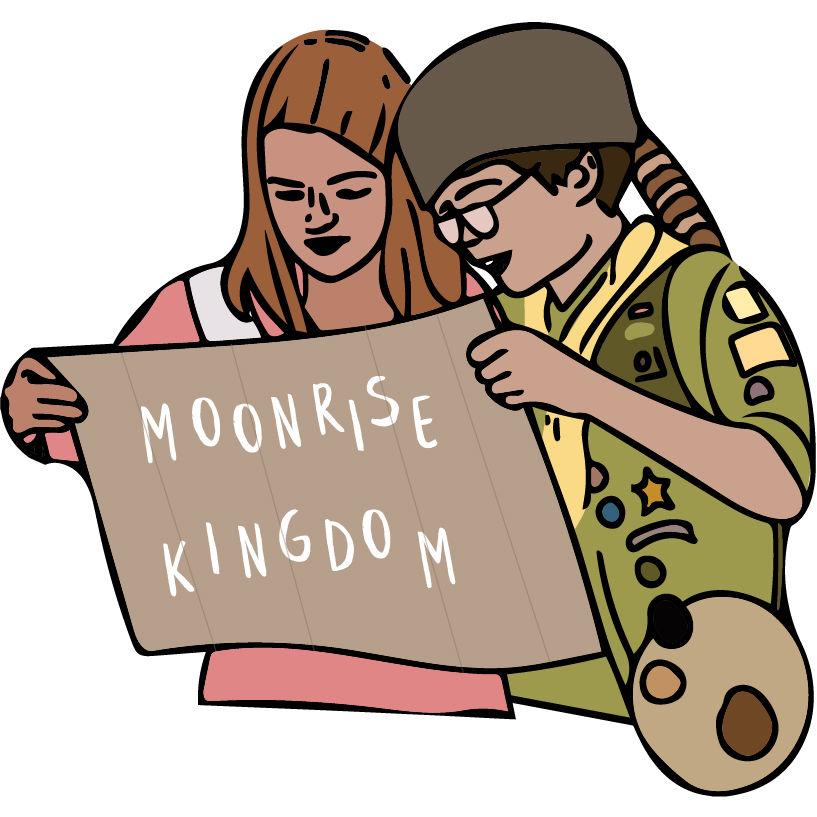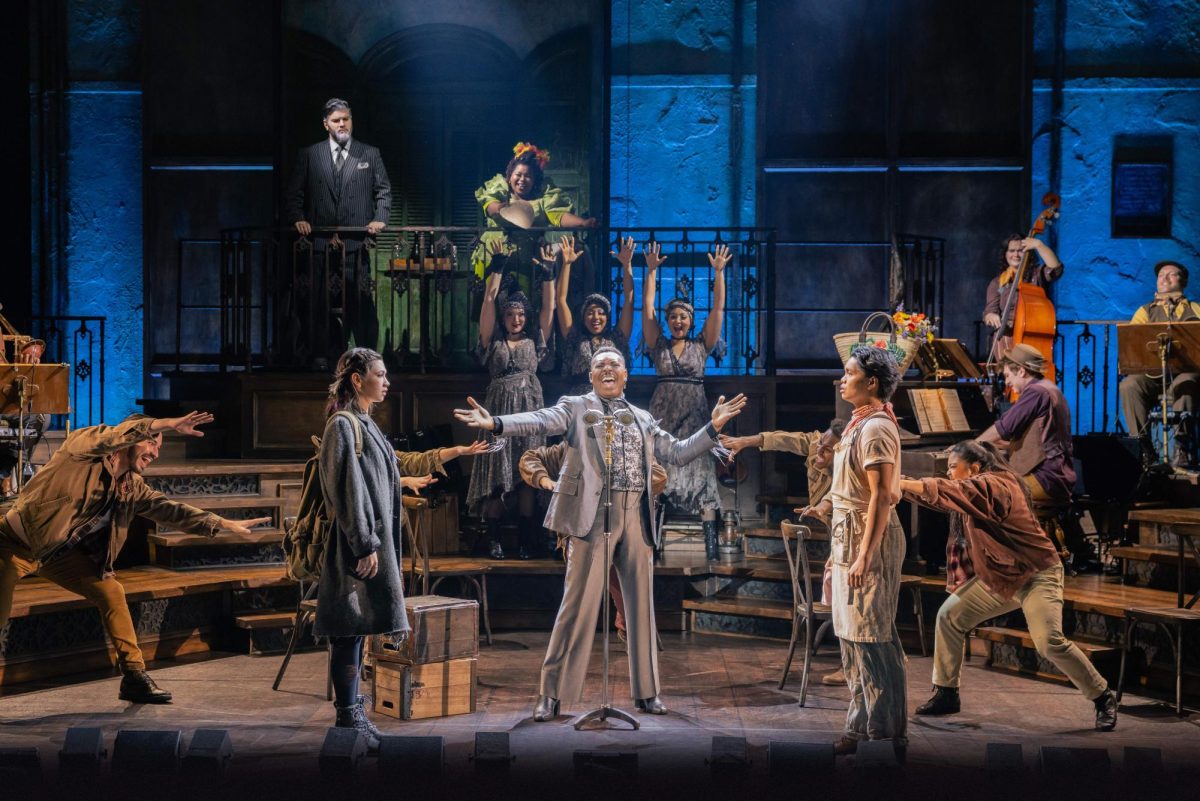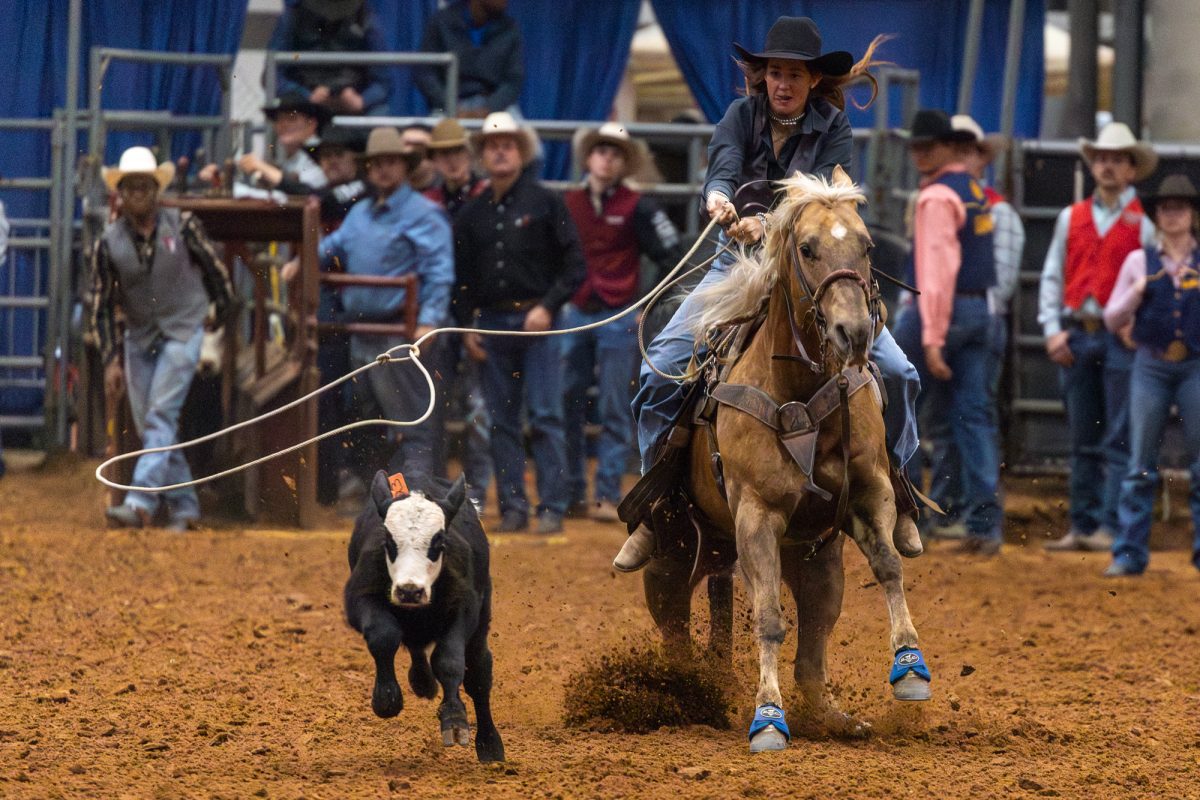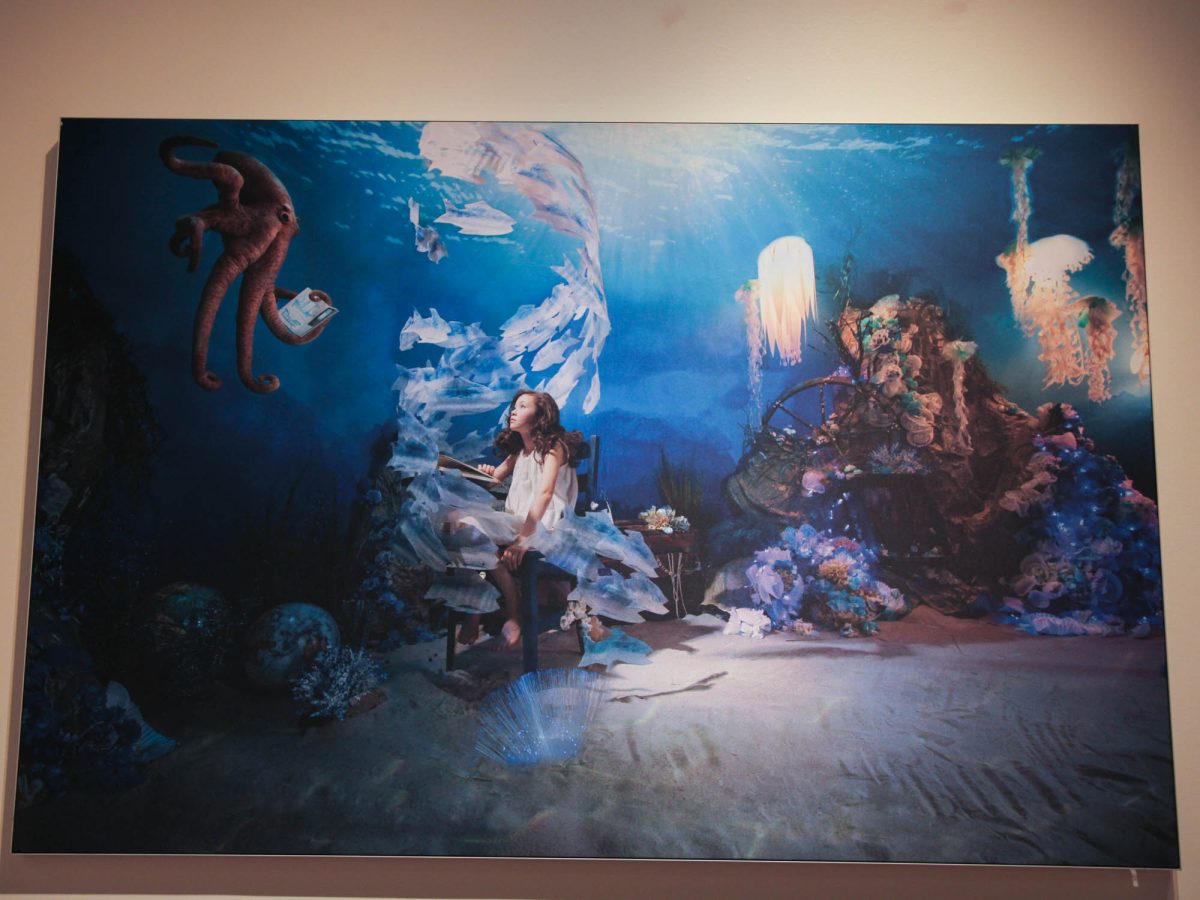“Moonrise Kingdom” is an art film that gets everything right. Director Wes Anderson, probably best known for his recent “Grand Budapest Hotel,” uses his characteristic and utterly bizarre filmmaking style to tell the story of two preadolescent kids who are exploring love for the first time, and trying to find their place in the world.
When a young Khaki Scout (Anderson’s stand in for the Boy Scouts) escapes from a summer camp to run away into the wilderness with his secret girlfriend a few days before a catastrophic storm is set to strike, the local police force and the remainder of the Khaki Scout Troop mobilizes to rescue the pair. The strange and often funny misadventure brings issues of childhood neglect and the dismissive nature of adults toward children into the spotlight.
The movie isn’t for everyone. It’s a decidedly strange film, with beautiful but odd visuals, deadpan humor and an underlying polite cordiality that masks and tames the characters’ emotions. It’s a weird watch. But with several big-name stars including Bill Murray, Edward Norton, Bruce Willis, Tilda Swinton, Jason Schwartzman and Harvey Keitel, “Moonrise Kingdom” is a masterpiece of subtlety, and a truly meaningful (and hilarious) film.
“Moonrise Kingdom,” as is the case with all of Anderson’s works, utilizes a very distinct visual feel. That style serves the film very well and contributes beautifully to its intricate message. From the yellow and blue hues that tint every scene, to the stationary shots and odd angles, Anderson uses his brilliant propensity for camerawork and color to make the movie into a visual marvel.
In addition to the film’s visual beauty, Kingdom is also noteworthy for its humor. Anderson utilizes an extraordinarily deadpan style, and has his characters deliver lines that will make you laugh and think at the same time. Wrought with subtlety and a simultaneous childishness, “Moonrise Kingdom’s” humor is used in a thoughtful way, to develop the characters and further the film’s message.
Even the film’s noticeable and consistent underacting contributes to its genius. Throughout the movie, the characters never seem to display any real emotion. Crying is done offscreen, almost no one ever raises their voice and even confrontations between characters are played out with a tamed politeness. But while this could be considered a shortcoming in most any other film, Kingdom internalizes the politeness and cordiality and uses it to highlight the hidden emotions of its characters.
Anderson’s abandonment of traditional displays of anger and affection make the small gestures — such as when Bruce Willis’ character sleeps on the floor to allow the young protagonist to take his bed, or when Bill Murray’s character gets really angry and flings a shoe — all the more meaningful. The subtlety of the characters and the veil of politeness through which they express their emotions adds depth to the film, and to the characters themselves.
All this considered, “Moonrise Kingdom” is an exceptionally beautiful and funny film with layers of subtlety, and a strong message about the nature of youth. It’s a strange movie, but one definitely worth watching.
Throwback Tuesday: Moonrise Kingdom
November 14, 2017
Photo by By Mariah Colón
Moonrise Kingdom
0
Donate to The Battalion
$1815
$5000
Contributed
Our Goal
Your donation will support the student journalists of Texas A&M University - College Station. Your contribution will allow us to purchase equipment and cover our annual website hosting costs, in addition to paying freelance staffers for their work, travel costs for coverage and more!
More to Discover










